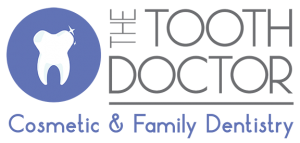Gingivitis is the most common dental problem—and one of the most serious. Left unchecked, gum disease can lead to periodontal disease, which could cause you to lose teeth. Periodontal disease can also increase the risk of contracting a number of other illnesses, including:
•Diabetes
•Heart disease
•Stroke
•Premature births or low birth weight
•Osteoporosis
•Respiratory disease
•Cancer
Gum disease is best treated when caught early, but early onset of gingivitis is almost always painless, so regular dental check-ups are the key to prevention.
The Progression of Gum Disease
In the very first stages of gum disease, you may notice a little inflammation and bleeding of the gums, and maybe a foul taste in your mouth. This stage is called gingivitis. It’s typically painless, but it’s the first step toward a serious infection, and it’s the only stage of gum disease that is reversible.
The infection of the gums, periodontal ligaments, and jawbone occurs when a build-up of calculus (tartar) breaks the healthy attachment between the teeth and gums. At this point, you start to develop what is known as pockets. These pockets are a perfect home for bacteria to collect and subsequently, a home for infection. The infection can destroy gum tissue and even bone (periodontal disease).
Once gingivitis has progressed to periodontal disease, toxins have begun to cause irreversible damage to the tissue and bone surrounding your teeth. At this stage, symptoms can be treated, but the disease has now progressed to a chronic condition. If it continues to get worse, it’s likely you will lose your teeth unless you pursue aggressive treatment.
We’ll Help You Prevent, Arrest, and Treat Gum Disease
Here’s the good news: Most people can prevent gum disease simply by maintaining good oral hygiene, that is, by brushing and flossing every day and by having regular oral exams and cleaning. The factors that increase the risk of gum disease include heredity, diabetes, smoking, alcohol use, heart disease, osteoporosis, respiratory illnesses, compromised immune systems, and the use of certain medications.
During your visit, Dr. Martinez will check you for any early signs of gum disease, and our hygienists will clean your teeth, removing all plaque and calculus to ensure its prevention.
In the case where you show signs of periodontal disease, we may recommend a more aggressive treatment by a gum specialist ( Periodontist).
